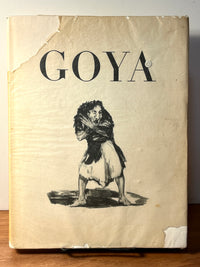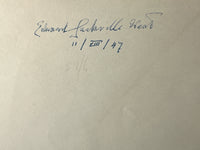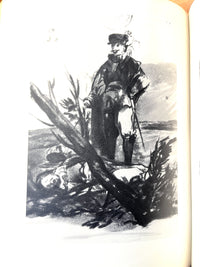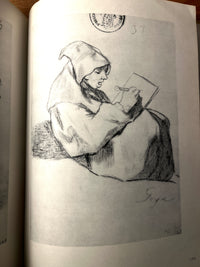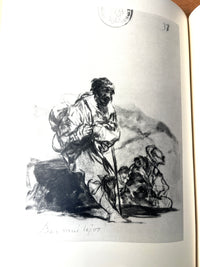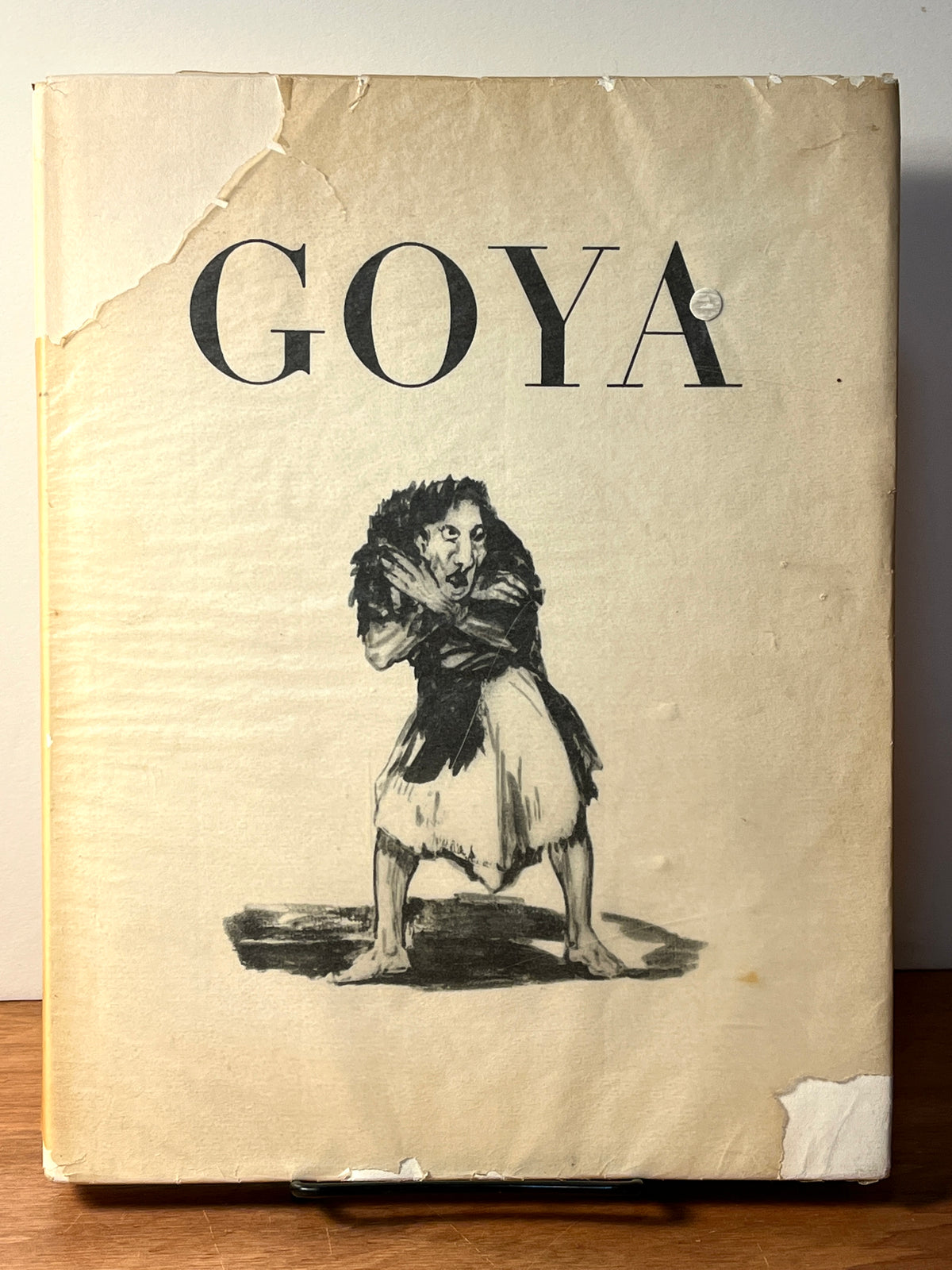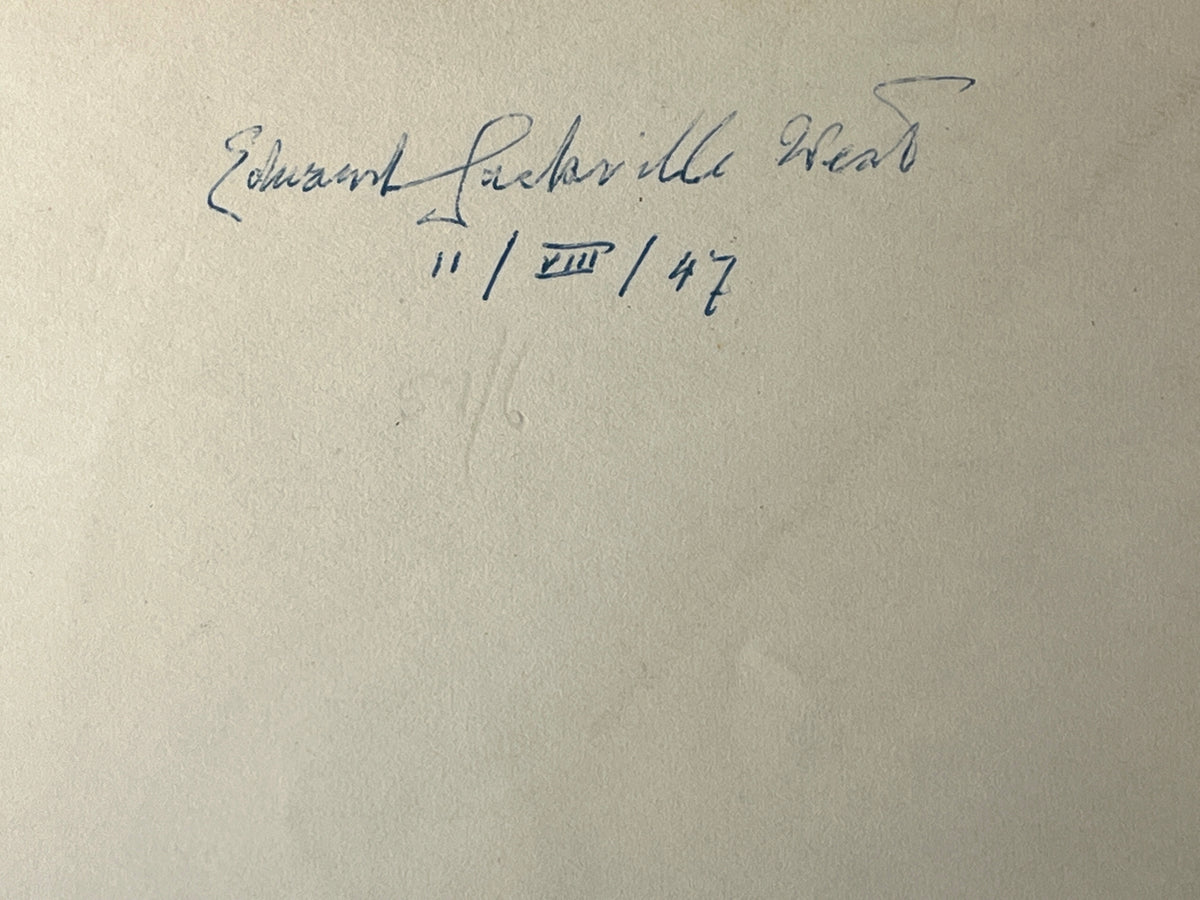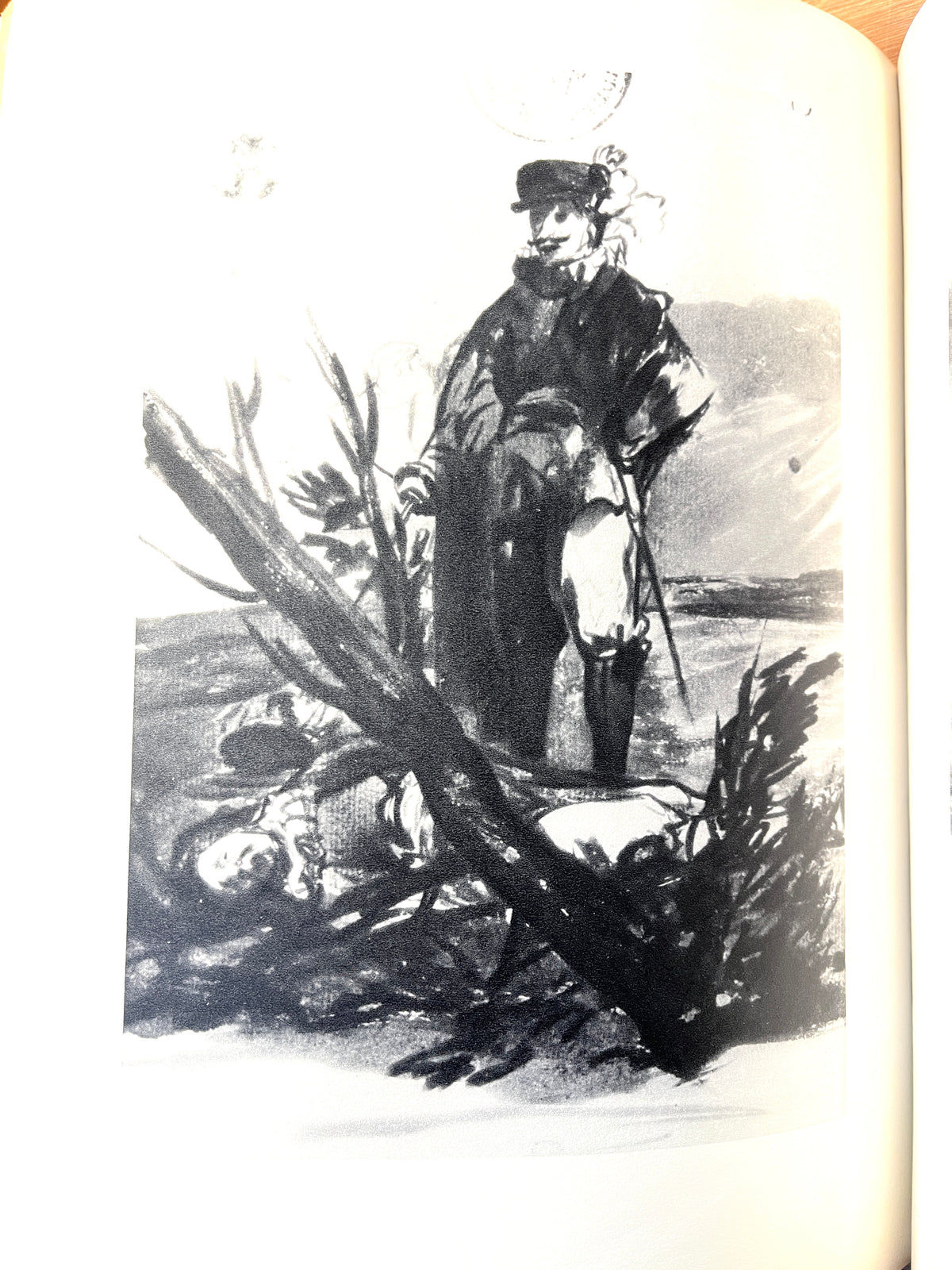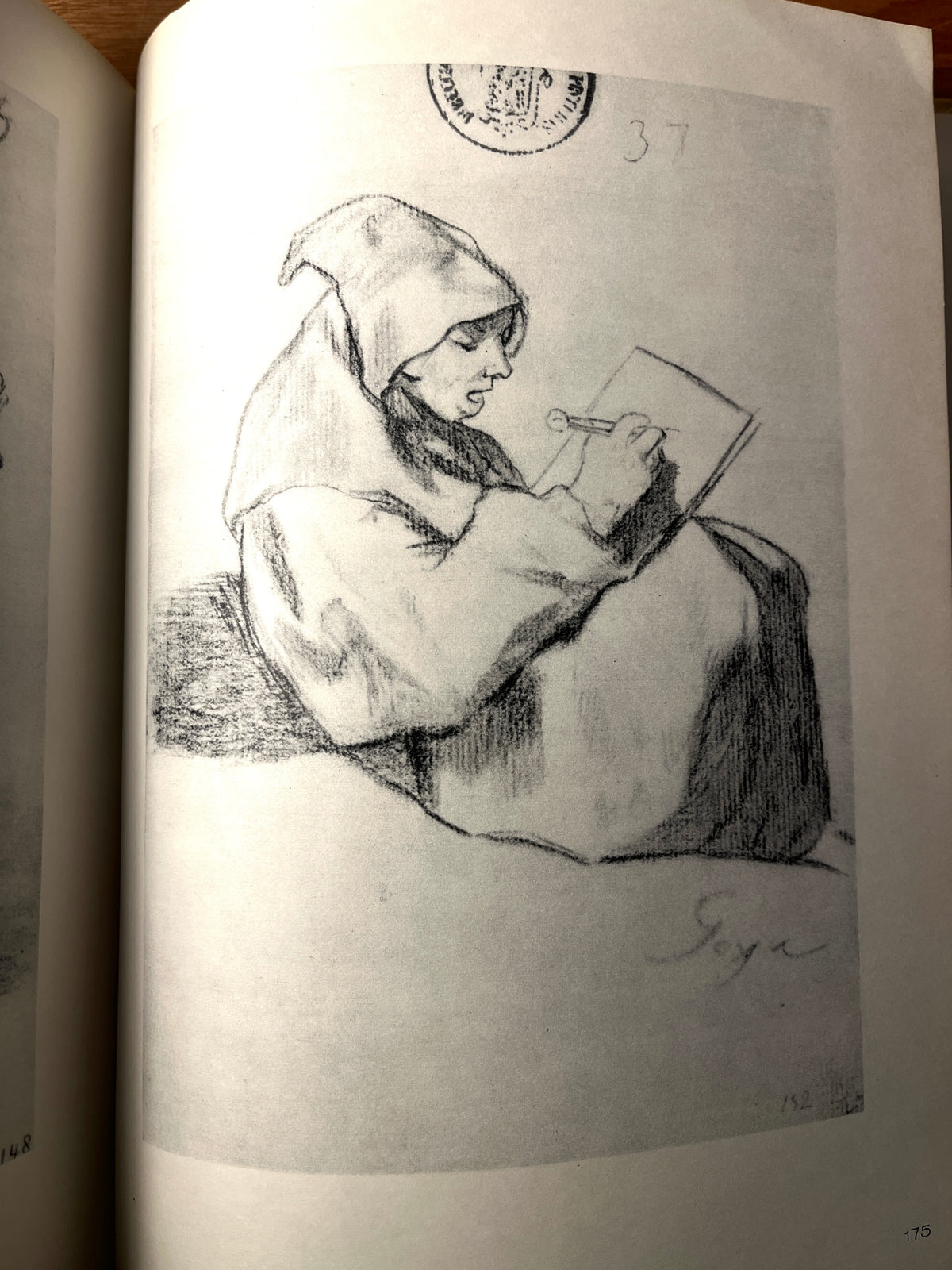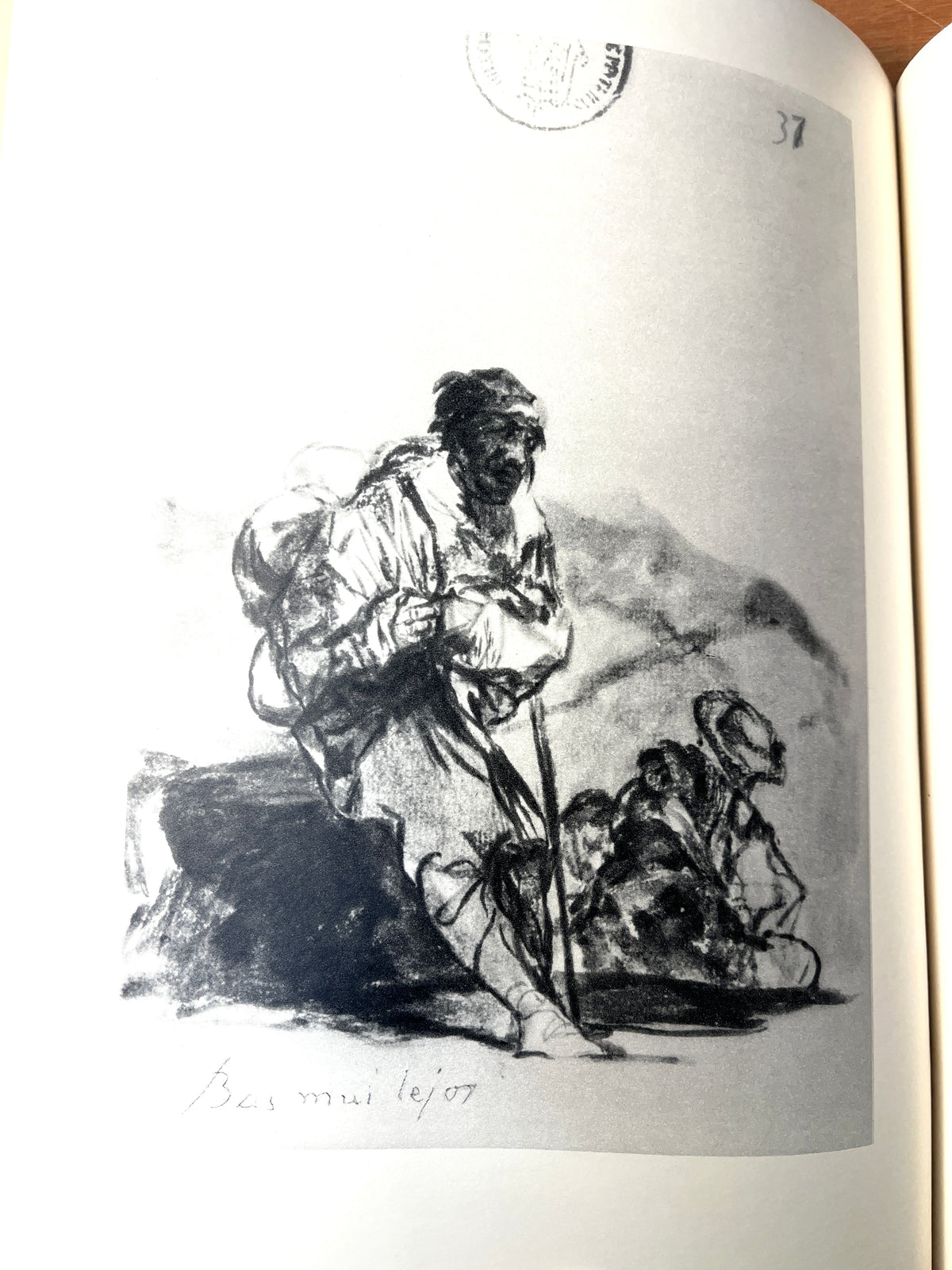Dessins de Goya au Musee du Prado, SIGNED by Edward Sackville-West
- Regular
- $276.00
- Sale
- $276.00
- Regular
Sold Out
- Unit Price
- per
Shipping calculated at checkout.
Malraux, Andre. Skira, Geneva, March 1947.
Very Good 8 ¾” x 11 ¼,” stated Original Edition, French language text. One of 200 copies, xxxviii, 195 [+ 12] pp.
SIGNED and dated on first free endpaper by Edward Sackville-West in ballpoint. Cardstock wrappers in French-fold stiff cream-colored paper dust jacket featuring a Goya charcoal drawings and black lettering to cover, black lettering to spine, some soiling and light bumping to exposed tips, small closed tears to top and bottom of spine, else intact, and otherwise unmarked. Glassine wrapper age-toned and chipped at the tips, edges and spine, ¼” dot of dried white paint to cover, not affecting the illustrated wrapper. xxxviii, 195 [+ 12] pp. Replete with black-and-white images of the drawings of Francisco Goya (1746-1828) divided into four chronological sections including Petit Album du Voyage a Sanlucar 1796-1797); Grand Album du Voyage A Sanlucar 1796-1797; Dessins a L’encre de Chine et la Sepia Avec et Sans Legendes Numerotes par Goya (India Ink and Sepia Drawings With and Without Numbered Captions by Goya) 1800-1825; and Dessins au Crayon Noir Avec et Sans Legendes Numerotes Par Goya (Black Pencil Drawings With and Without Numbered Captions By Goya) 1820-1828. These drawings were created after an illness left Goya deaf and marked a change in direction of subject matter and development of his style. Both his condemnation of brutality toward prisoners and his exploration of the relationship between fantasy and nature which would mark his later work are evident here. Also here are drawings made during the French invasion of Spain during the Peninsular War, and the drawings that accompanied his descent into mental and physical despair at the end of his life. Seen by many art historians as an anti-war humanist, Goya grew less interested in the search for beauty, choosing instead to record the vagaries of human folly.Edward Sackville-West (1901-1965) was a British music critic, author and, in his last years, a member of the House of Lords as 5th Baron Sackville. He was an art collector and a novelist in his own right, though gained more notoriety as an essayist and biographer. Notably, he was also the cousin of Vita Sackville-West, the lover of Virginia Woolf, and inspiration for Orlando. Edward Sackville-West is not listed as a contributor to this edition, but he is credited as the translator for the English and Spanish translated editions, both also published in 1947. This book appears to have come from his private library.
From the Library of Bay Area Artist Keith Boyle, Art Teacher at Stanford University.

